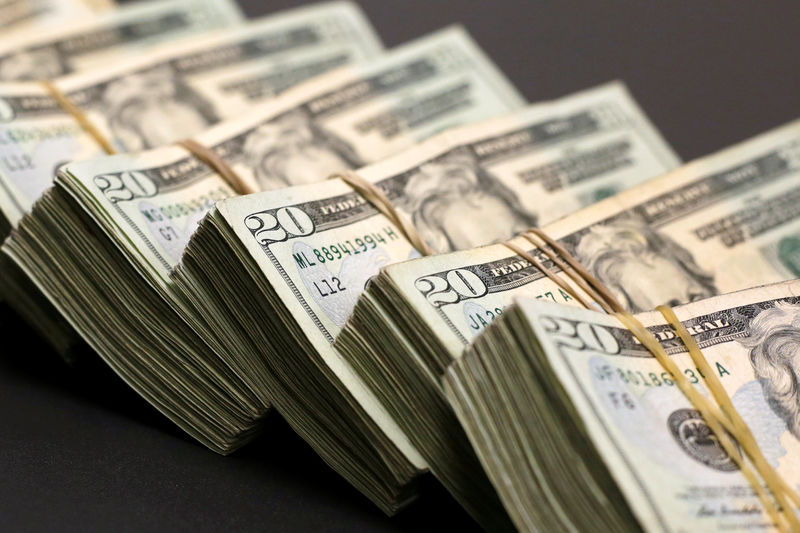Investing.com– Most Asian currencies moved little on Friday and were nursing losses for the week, while the dollar steadied at a one-year peak and was set for a strong week as markets dialed back bets on lower U.S. interest rates.Â
The dollar was headed for a sixth straight week of gains as it extended its rally on Donald Trump’s election victory from last week. Less dovish statements from the Federal Reserve and strong U.S. inflation readings added to the greenback’s strength.Â
This trend weighed heavily on most Asian units, with middling economic readings from China and Japan adding to the negative sentiment on Friday.
Dollar strong as rate cut bets recede on inflation, Powell commentsÂ
The dollar index and dollar index futures both rose 0.1% on Friday and were close to a one-year peak hit earlier in the week.
The greenback was up between 1.6% and 2% this week, its best week since end-September.
Gains in the dollar were initially driven by Trump’s election victory, with expansionary policies under his administration expected to drive up inflation in the long term.
In the near-term, sticky consumer and producer inflation readings spurred doubts over future rate cuts by the Federal Reserve, especially as Chair Jerome Powell said resilience in the U.S. economy gave the central bank more time to consider cutting rates.
His comments saw traders sharply dial back expectations for a 25 basis point cut in December.Â
Japanese yen fragile, USDJPY crosses 156 after weak GDPÂ
The Japanese yen weakened further on Friday, with the USDJPY pair trading above 156 yen and at its highest level in over three months.Â
Gross domestic product data for the third quarter showed Japanese economic growth slowed sharply from the prior quarter. While private consumption remained strong, weakness in other sectors of the economy, especially in exports and investment, weighed on growth.
The GDP price index also grew less than expected in Q3, indicating that inflation growth slowed during the quarter.Â
Friday’s data drove up hopes that weakness in the economy will keep the Bank of Japan from raising interest rates further- a scenario that bodes poorly for the yen.Â
Broader Asian currencies were fragile and headed for weekly losses. The Chinese yuan’s USDCNY pair rose 0.1% and was set for a seventh straight week of gains.
Chinese industrial production missed expectations, while retail sales grew more than expected in October on the Golden Week holiday. But overall economic conditions in the country still remained week, with recent stimulus measures largely underwhelming markets.
Focus is now on a potential loan prime rate cut by the People’s Bank next week.Â
Concerns over China saw the Australian dollar weaken, with the AUDUSD pair hovering around a three-month low.Â
The Singapore dollar’s USDSGD pair fell 0.1%, while the South Korean won’s USDKRW pair fell 0.2%. Both currencies were headed for losses this week.
The Indian rupee’s USDINR pair steadied after hitting record highs this week.


